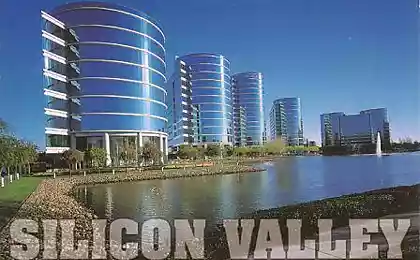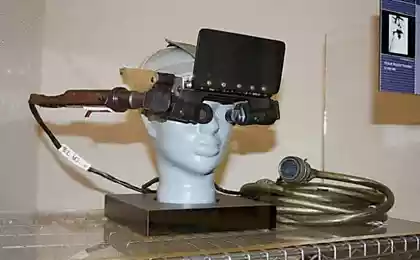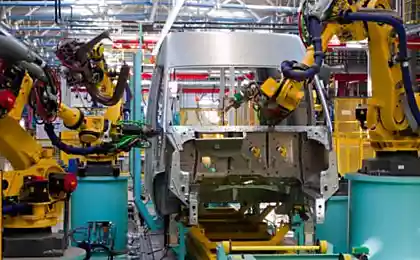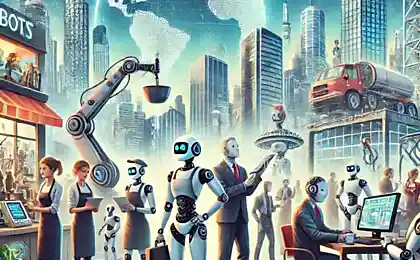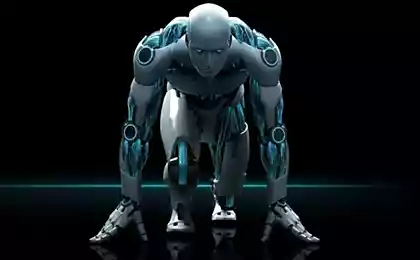1352
Marc Andreessen: Why optimism is always a winning strategy

Mark Andreessen does not get into his pocket for a word. The tall, bald, energetic venture capitalist who invented the first popular Internet browser, co-founded Netscape, made a fortune by investing early on in Twitter and Facebook, has since become the chief resident philosopher of Silicon Valley. He is ubiquitous on Twitter, where his machine-gun queues of bold statements on various topics have amassed an army of adherents (and engaged in several very large battles). At a controversial moment for the IT industry, Andreessen is the technology industry’s chief captain and tireless advocate for his special vision for the future.
I loved the moment when you first met Mark Zuckerberg and he said, "What was Netscape?"
He didn't know.
He was in high school when you founded Netscape. What is it like to work in an industry where things are changing so fast that in ten years the collective memory is completely overwritten?
I think it's fantastic. It is as if there are two Silicon Valleys. The first is made up of people who were here during the 2000 crash, and the second is made up of people who didn't see it, and their psychology is very different. Those who survived the collapse of 2000, it was like scar tissue, because then everything went awry and it sucked.
You came to Silicon Valley in 1994. How was it?
Everything is extinct here. Total silence. After the giant PC boom in the 80s, when Apple, Intel, and Microsoft were active in Seattle. And then the U.S. was hit by an economic recession -- in 1988, 1989 -- and that was against the backdrop of Japan's precipitous decade-long rise. Silicon Valley had such a brief flash, but Japan was going to pick it up. And then the American economy went downhill. You take a newspaper, and there's only endless suffering and misery. Technology in the US is dead; economic growth has stalled. All of America’s kids, Generation X slackers, have no ambition, will never achieve anything.
What did you do?
I just went to college. I went my own way. I came here in 1994, and Silicon Valley was in a lethargic sleep. In high school, I thought I had to learn Japanese to work in the tech industry. My main feeling was that I missed it, it was over. The movement was in the '80s, and I came too late. But I'm probably the most optimistic person I know. I mean, I'm incredibly optimistic. I am optimistic, perhaps to the point of error, especially about new ideas. My typical tendency when familiar with a new idea is not to ask, “Will it work?” but to ask, “What happens if it works?”
I work hard to keep that setup because it’s very easy to slide into a different mode. I remember when eBay started making progress, I thought, ‘Fuck it.’ Damn flea market? How much shit do people have in their garages? Who needs it? But those were irrelevant questions. The guys at eBay and the early investors said, "Let's forget whether it works or not." What happens if it works?” If the project goes off, you have the world's first global trading platform, you have a flow of goods of all kinds, you open the true market price of goods.
But you don't think everything will work.
Nope. But there are people programmed to be skeptical, and there are people programmed to be optimistic. And I can say, for the last 20 years at least, that if you're on the side of the optimists, you're usually right.
On the other hand, if there had been more skeptics in 1999, people could have kept their retirement savings. Isn't that the importance of skepticism in the tech industry?
I don't know what that gives you. I'll say that. If you can point to periods of time in the last hundred years where things have calmed down and nothing has changed, then maybe they have. But it does not seem that such a time will ever come. Skeptics are wrong all the time.
These days, Silicon Valley plays a cultural role that Wall Street might have played in the '80s.
There are pros and cons. But entrepreneurs will tell you that it’s better — not necessarily easier — to grow a company in a recession, because there’s less turbulence, it’s easier to recruit people, there’s less competition. Entrepreneurs say it’s hard to grow a business during an economic boom because everyone is agitated and too much money is destined for too many marginal companies.
Today, there are several big companies in the tech industry: Facebook, Google, Amazon, Apple. Which of today’s startups do you think will join them?
All our startups.
You have investments in many companies.
You should love all your children equally.
One of the things that you really like, at least on Twitter, is digging up old pessimistic predictions from people like Paul Krugman, where they compare the Internet to a new generation fax machine and all that.
This is part of the overall feeling of the IT business. Strangely enough, it's actually a fundamental part of American culture. You read Tocqueville, right? At the heart of American culture lies a paradox: in theory, we love change, but when change is real, it is met with hostility. We love change in general, but we don’t like it in particular. Absolutely about every thing that anybody here has ever done, there have always been people saying, "That's bullshit." It's never gonna work. That's stupid.
The media is definitely more skeptical of technology than you are.
There is a kind of cultural criticism, individual manifestations. Obviously, I don't agree with many of them, but I'm sure the right set of topics has been chosen: Will technology take all the jobs? The unequal distribution of income, the whole discussion about the destructive effects of technology.
I noticed you didn't really like Jill Lepore's essay on the disruptive impact of technology at The New Yorker.
It's not so much analysis as primal screaming. But the argument that drives me crazy the most was a common one three years ago: that innovation is over. "The Great Stagnation." There's an economist in Chicago, Robert Gordon, who says, "Everything new right now is nonsense." How can this be compared to the Industrial Revolution? There will be no more economic growth.” Honestly, I would rather accept the criticism that technology is changing the world too much than the criticism that it is insignificant.
If we talk about staffing Silicon Valley, it is probably possible to use online education. But the question is, who is better at this kind of training? They are self-taught people who can work on their own. Studies show that the poor are a minority.
It's too early to tell, because we're in the early stages of this technology. It’s like criticizing DOS 1.0 and saying it will never turn into Windows. We're still in the experimental prototype stage. We can't use the old way to educate the world. We can't build that many campuses. We don't have enough space, we don't have enough money, we don't have enough teachers. If you can go to Harvard, go to Harvard. But that's not the question. The question is whether a 14-year-old from Indonesia will start his life with a subsistence farm or a Stanford-quality education course that will allow him to choose a professional career.
One thing people really underestimate is the impact of entertainment economics on education. Right now, with massive online courses, student numbers are small - and you just videotape the professor in the audience. But let's project the situation into the future. Let’s say that in a decade’s time, a basic math course (Math 101) is taught online, respected, fully accredited, and given a universally recognized certificate. What if we had a million students every semester? And what if each of them paid $100? What if we knew we could make $100 million in revenue from this course in a semester? What budget will we allocate for the course preparation?
You can hire James Cameron.
You can literally hire James Cameron to produce an introductory math course. Or, for example, to study the wars of the Roman Empire in virtual reality, walking around the battlefield or flying over it. And there's fighting down there, and the program shows you the maneuvers that actually happened. Or how about re-creating Shakespeare's original productions at the Globe Theatre?
Can we talk a little bit about robots, one of your favorite topics?
Sure.
People have been worried for decades that automation would ruin the economy.
No one likes to talk about the old. The previous farm work was absolutely terrible. I mean, the farmers got up at six in the morning and worked 14 hours a day. Work in the factory - people died there. Miners are trying to protect their mining jobs. These are horrible, horrible jobs. New jobs are better. They're just better. This is happening all over China, and now in Indonesia and Vietnam. Every time Foxconn opens a factory, literally hundreds of thousands of people apply for jobs. In developing countries, people are willing to do anything to get into modern manufacturing, because the alternative is much worse. So actually, thanks to technological progress, work gets better.
But suppose a machine was invented that cleans hotel rooms. We can process rooms more efficiently, hotels reduce costs. But all the maids are out of work now. Is your thesis that they should be retrained for another profession?
We're going back to libertarian stuff -- I believe in social safety nets. I think on an individual level, these changes are real and they are important. I grew up in rural Wisconsin in the '70s. I grew up in an agricultural, industrialized country. That's how we lived. So I believe in a social safety net at the individual level.
From an economic point of view, the situation you described is an example of keeping a balance on the number of working hours (lump-of-labor fallacy), because cleaning rooms is not the only job in hotels. If you go to a modern hotel in a large city, you will see that there are many employees of other professions. All these people who work in spas, in fitness clubs, wine bars, guides. These are all new professions. If you had gone to a hotel a hundred years ago, none of these professions existed. This is how the development cycle happens. You climb the welfare ladder, you make more tax deductions, and that money goes back into the social safety net.
I can't agree here. You assume that this money will automatically flow into the social safety net, that it will respond to growth and bring resources back. This requires a deliberate change in legislation that many people disagree with.
I'm not one of those people. We have a very advanced welfare system.
Let’s look at the hotel from the other side. Let’s assume that we have abandoned modernization. We have a magic machine that cleans the rooms, but we don't use it because we want to keep the maids working. Well, then in the old days, you should leave your hotel job to the guys who light the stoves. Should we give up the heating systems and return them? Before the refrigerators, there was a whole layer of workers who pricked and brought ice. Should we go back to storing food on ice that is pricked and delivered by hand? If you think machines are your enemy, you have to go back and put everything in its place, right? If you follow this logic, then you need to go back to the very origins, that is, to subsistence farming. It is better to make clothes with your own hands.
Let's talk about the nature of work. Keynes said that when everything is automated, we will have no material needs and no need for labor. All food will be delivered or synthesized. . .
We're working on it. But this is not to say that there will be no need for work. Keynes wrote in the 20s and 30s, when it was a serious problem for a person to get food or heat a house. But it’s a misconception that a person’s needs are limited, and once you meet them all, nothing else is needed. We have food and clothes, and that's it. We don't need a spa, we don't need a psychologist, we don't need video games, we don't need space tourism, we don't need artificial organs, we don't need corneal implants for blind people, we don't need thousands of other things that we've discovered.
There is another view of Milton Friedman that I hold. Friedman believed Keynes was wrong for the same reason that I did: human needs and needs are infinite. We will never be satisfied. Go to Keynes and tell him that every middle-class parent in the United States will want to enroll their child in violin lessons.
Last night, you posted a tweet that elicited a big response: "It's hard to be a billionaire because no one will say your stupid ideas are really dumb." Was it autobiographical? I mean, does it bother you?
I'm not a billionaire! That's why I'm so entertained! Everyone immediately thought I was talking about myself.
But you're in such a position that if I worked for you, I'd be afraid to call your stupid ideas stupid.
My tweet is about billionaires who don't understand what's happening to them. They'll be the last to know. Because they don't feel the situation changing. They just feel like, "I'm who I used to be, I'm going my way, I'm doing the right thing." And very rarely do they really stop and think, "Everybody's somehow better at me than they were ten years ago." The phenomenon is not limited to billionaires. The same goes for presidents, senators, mayors, all those in power.
So how can you, Mark Andreessen, be sure you hear honest feedback?
Every morning I wake up and a few dozen people on Twitter explain to me in detail why I'm an idiot, which is actually very helpful.
Did they ever convince you?
They definitely keep me in shape and we'll see if they can convince me. I mean, I like to argue.
Really?
For me, the big advantage of Twitter is that there are more people to argue with.
Judging by your tweets, you sleep about three hours a night.
I'd say intermittently.
Do you have a bed in the office where you can relax during the day?
This is the first time in my life that I have an office with a door, so for the first time in my life I have a sofa in my office. So I took a great nap last afternoon, actually.
What does a venture capitalist do all day long? I was sure you attended dozens of meetings a week, but what conclusion can I draw when I read your tweets 24 hours a day?
In reality, our firm [Andreessen Horowitz] makes about 15 decisions a year.
It's a pleasant life.
Yeah. The result of our work is investment income. We're trustees for investors. They gave us a lot of money, not other people. The task of the company is to make investments and make a profit from them. And we make about 15 major investments a year. So these are important decisions. At the end of the day, what are we most responsible for? These are the 15 decisions and their consequences. I spend a lot of time working with founders and CEOs from our portfolio. In fact, I am in constant contact with them.
Back to free time. I know you love Deadwood. Is he still your favorite show?
Yeah. Favorite all the time so far.
Indeed, there can be no better choice for a venture capitalist, because there the action takes place in times of gold rush, when the foundations of society are being laid. Do you think you could be a Wild West gold digger?
Oh, I'm sure I could. Deadwood is in the Dakotas, but obviously California is a good fit for him, too. So yes, no doubt... All my life I have admired the concept of the frontier.
Where I see the spirit of the frontier now is in the movement around life extension. I think it annoys a lot of techies that we haven't conquered death yet.
And the amazing thing about this is that if you survey Americans and you ask them if they would like to extend their lives, a surprising number of people say no. Something like 70% or 80% say they wouldn't.
Do you share their views?
I think there are two pitfalls to be wary of. One is the phenomenon that as people age, they become less receptive to new ideas. Not individually, and there are many exceptions, but collectively, from the point of view of society. Another interesting point is inequality. If you give people another 20 or 50 years to accumulate wealth, the concentration of money by age group becomes very noticeable.
One of the things I've read about you is that you're not always tactful. I think you once said you didn't like people.
I love people in an abstract sense.
And on an individual level?
On an individual level, I don't know. I haven't found out yet.
Kevin Roose interviewed for New York Magazine, published October 20, 2014
(published with abbreviations)
Source: habrahabr.ru/post/241015/


